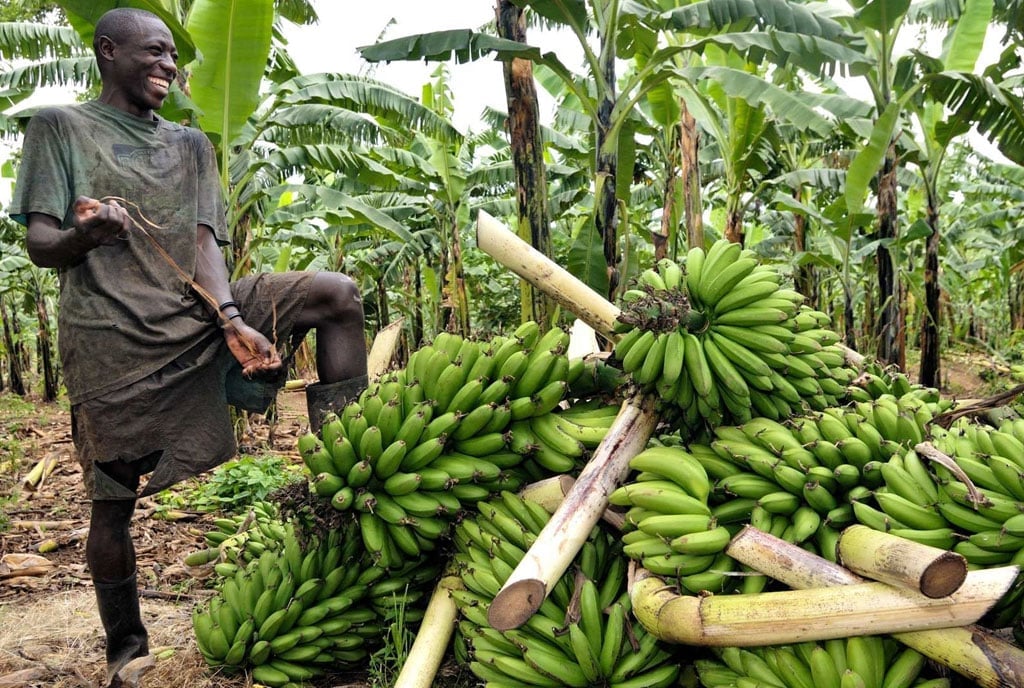How changing youth perception can transform agriculture in Uganda

What you need to know:
- Recent trends show that significant portions of the Emyooga and PDM funds intended to uplift Ugandans from poverty, have been misused or misappropriated. This disturbing trend has led to questionable efficacy of these initiatives due to a lack of scrutiny and due diligence.
In Uganda, where approximately 78 percent of the population is under 35years, projected to double in the next 25 years according to a United Nations International Children’s Emergency Fund (Unicef) report, and more than half are employed, repurposing youth engagement in the agricultural sector could be fundamental to national progress.
More specifically, equipping the youth with modern entrepreneurial skills in agro-business before considering them for government funds like the current Parish-Development Model (PDM) cash may significantly curb its mismanagement and potentially alleviate unemployment, poverty, and rising crime rates.
Nonetheless, the predominant perception among our young people is that agriculture is an occupation solely for the illiterate or low-income earners, but this myth hampers this adaptive and less-explored potential.
Recent trends show that significant portions of the Emyooga and PDM funds intended to uplift Ugandans from poverty, have been misused or misappropriated. This disturbing trend has led to questionable efficacy of these initiatives due to a lack of scrutiny and due diligence.
Complementing programmes like Emyooga and PDM by introducing upfront skills training and mentorship in agri-business could serve to not only mitigate these issues of mismanagement but also effectively contribute to reducing unemployment.
Unemployment among young people in Uganda is a growing concern, and there is a need for concerted efforts to address the issue.
The First Lady and Minister of Education and Sports, Ms Janet Museveni, during her one-week monitoring of the implementation of the PDM programme in Ntungamo District last week, advised communities to choose enterprises that they can easily run and quickly make money from, with agriculture being the best option.
Ms Museveni raised concern about some people who spend all their money on fancy lifestyles, leaving nothing to invest, highlighting some youth who own multiple mobile phone handsets, yet they remain unemployed and spend their time playing billiards instead of engaging in their families’ income-generating activities.
The First Lady described poverty as a curse, adding that this was the time for the people of Africa to get out of poverty.
The time is ripe to debunk the myths and misconceptions about agriculture being specific for the uneducated, peasants or the old folks. The narrative needs to be set correctly, farming is an industry with immense potential, from transnational supply chains to technological applications.
Our young people need to come to terms with the fact that modern agriculture isn’t confined to the traditional hoe and plot but embraces sophisticated mechanisation, profiling a neat, smart, and tech-driven sector.
Consequently, driving young people towards agri-business can help address unemployment and reduce crime rates in Uganda. Statistics indicate a positive correlation between unemployment and crime rates among young people.
If the potential within the agricultural industry is shown, young adults could be drawn away from criminal activities and decadence, engaging in an activity that enhances their lives and the community at large.
In addressing this, the Ugandan government, civil society, international organisations, and the agricultural sector need to be proactive. Agriculture’s advancement lies in integrating it with entrepreneurship and technology, creating opportunities for the youth.
Offering targeted skills training, and financial and technical support tied to the government’s poverty alleviation initiatives like Emyooga and the PDM can boost the youth’s participation and success in agri-business.
Public awareness should also focus on modernisation and profitability in agriculture, illustrating the huge potential for young entrepreneurs.
Promoting youth involvement in agri-business as a precursor to receiving government funds such as Emyooga and PDM cash under a rigid structure of accountability, may offer a profitable framework to scale down on fund’s mismanagement.
Beyond this, it potentially unlocks the youth’s potential in agri-business, and dissipates the misperception that equates farming with low-class citizens.
Ultimately, this shift can reduce unemployment, poverty, and crime rates in Uganda, deriving an age-old industry’s potential for contemporary well-being. Let the battle against the misconception begin.
We need our young people in the fields, for it is in the soil that we will reap our future prosperity.
Rosette Gladys Nandutu, Advocacy Officer, Vijana for Sustainable Development & Environmental Action




